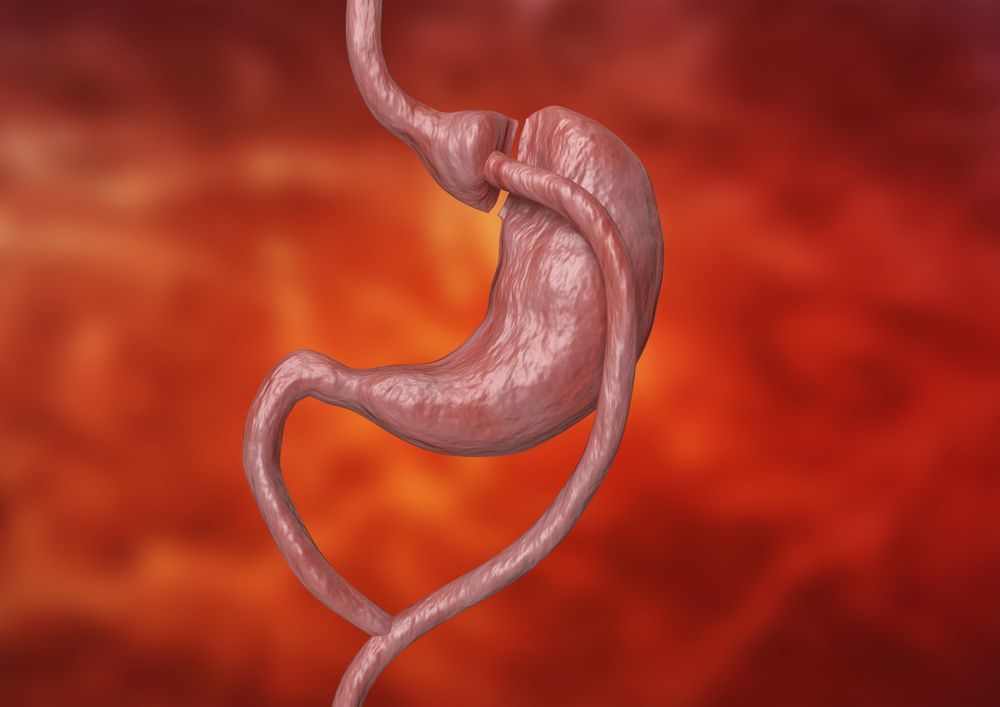When people think of a bypass before and after, they usually picture dramatic weight loss photos. But those show only part of the truth. Here we will be talking about some of the steps that need to happen on the inside, before and after the surgery. All the decisions, and the changes in everyday life, handling the emotions that come up, and just how important the support system is.
{{cta_button}}
Gastric bypass surgery
Gastric bypass surgery is one of the most effective bariatric surgeries for significant weight loss. Patients typically achieve a 60% to 70% loss of excess body weight. Additionally, long-term data show that over half of this weight loss can be maintained for up to 20 years.
The surgery works by reducing the size of your stomach to a small pouch and rerouting part of your small intestine. As a result, you feel full more quickly, absorb fewer calories, and experience hormonal changes that reduce hunger and improve conditions like type 2 diabetes.
Success Takes More Than Surgery
The bypass surgery is just a tool; it is not a magic trick towards losing weight. After the surgery, you are still the same person, so it is crucial to start changing habits even before the surgery. This is a non-negotiable for long-term success. You have to commit to making sustainable changes to your physical, mental, and behavioral lifestyle. Preventing weight regain is a shared priority for both patients and doctors. Below, you can see suggested and proven changes that should be made before and after surgery, so you can write your weight loss success story.
Before the Bypass: Build Better Habits
There are many reasons for weight gain; it is never just one. To effectively lose weight and not regain it, you have to make several changes, some even before the surgery.
Eating Patterns
People wanting to lose weight often have unhealthy eating patterns that have contributed to their obesity. These commonly include emotional eating, consuming excessively large portions, and a reliance on high-calorie and highly processed foods. Other patterns include fast eating, late-night snacking, and frequently skipping meals. Addressing and modifying these behaviors before surgery is critically important.
Emotional Health
If food has become your way of coping with stress, anxiety, or sadness, now is the time to face those patterns. Emotional eating won't disappear after surgery—it just becomes harder to rely on. You'll no longer be able to eat large amounts, but the emotional triggers will still be there.
Working with a therapist, joining a support group, or finding alternative coping strategies will help you build emotional resilience. The more honest you are with yourself during this phase, the easier your "after" will be.
Movement and Routine
Many obese patients face challenges with limited mobility and a predominantly sedentary lifestyle. That’s why developing an exercise plan well in advance of the procedure is a much needed step. A physical therapist can provide guidance in identifying suitable physical activities and offer creative strategies to integrate more movement into daily routines.
Exercise doesn't have to start big, but it has to start somewhere. A 15-minute daily walk, a short stretch in the morning, or even just reducing sedentary time can make a big difference. What matters most is building consistency now so movement feels normal later.
This might mean blocking out time in your schedule, prepping your walking shoes in the evening, or even creating a playlist you enjoy. These small habits create momentum that will carry you forward after surgery.
{{cta_small}}
After the Bypass: Living the Change
Once your gastric bypass is complete, everything you've been preparing for starts to come into play. The changes are real, and they're not just physical. This is the time to truly embody your bypass before and after transformation.
Nutrition and Food Tolerance
Your new stomach pouch can only hold a small amount of food, usually around half a cup to one cup. You'll need to eat slowly, chew thoroughly, and pay close attention to how your body responds.
Some foods may no longer sit well, including fried items, sugary snacks, and even bread, pasta, or red meat. It's common to experience food intolerances or symptoms like bloating, nausea, or dumping syndrome if you reintroduce some of the foods too quickly. Take it slow, test one food at a time, and observe how your body reacts.
The habits you built before surgery—like mindful eating and avoiding emotional snacking—become very important in this phase.
Physical Activity
Remember the plan you made before the surgery for physical activity? Now is the time to put it into action.
Right after surgery, gentle movement like walking around the house is encouraged to help with healing and circulation. Within a few weeks, you can gradually begin low-impact exercises. Eventually, building up to 30 minutes of moderate activity several days a week becomes the goal.
Staying active supports not just weight loss but also mood, energy, and overall well-being. Because you planned for it before surgery, it won't feel like starting from scratch.
Emotional Adjustments
The emotional shifts after surgery can take you by surprise. Some feel more confident, while others struggle with body image, mood swings, or a lingering feeling of being the "old" version of themselves. These feelings are valid and common.
Having a support system in place—whether that's friends, family, or a professional—makes it easier to navigate the ups and downs. You don't have to process everything alone, and reaching out can be a powerful step in the healing process.
Family and Support Make a Big Difference
Your bypass before and after journey doesn't just affect you—it often impacts your entire household. Studies show that when one person makes positive changes, others tend to follow.
By involving your family in healthier meal planning, regular movement, and open communication, you're creating an environment that supports everyone's well-being. Shared routines, even simple ones like family walks or cooking together, can strengthen your support system and reinforce your commitment to one another.
Follow-Up and Celebrate
Weight loss after surgery isn't the end goal—it's a stepping stone. To maintain results and stay healthy, ongoing follow-up with your bariatric team is essential.
In the first year, you'll have check-ins at regular intervals. After that, annual visits are recommended. These appointments help track your progress, monitor nutrient levels, adjust medications if needed, and provide support if challenges arise.
Consistent follow-up is one of the best ways to protect the progress you've made. Don't forget to celebrate and take pride in every step of your journey.
The Real Transformation
Gastric bypass is a powerful tool, but the real transformation happens in your mindset, emotions, and daily life. Your bypass before and after story is about so much more than weight loss—it's about healing from the inside out.
By preparing before surgery, staying committed after, and leaning on your support system, you're creating lasting change that isn't just about how you look, but how you live.
FAQ
How should I prepare before gastric bypass surgery?
Preparation involves building healthier eating habits, addressing emotional eating, and establishing an exercise routine. These are key steps for successful and sustainable weight loss after bariatric surgery.
Is gastric bypass surgery a quick fix for weight loss?
No, gastric bypass is a powerful tool, not a magic solution. True bypass before and after success requires a long-term commitment to behavioral and lifestyle changes.
How important is support after a gastric bypass?
Support from family, friends, and medical teams plays a major role in maintaining motivation and navigating the emotional and lifestyle challenges after surgery.
{{cta_button}}







